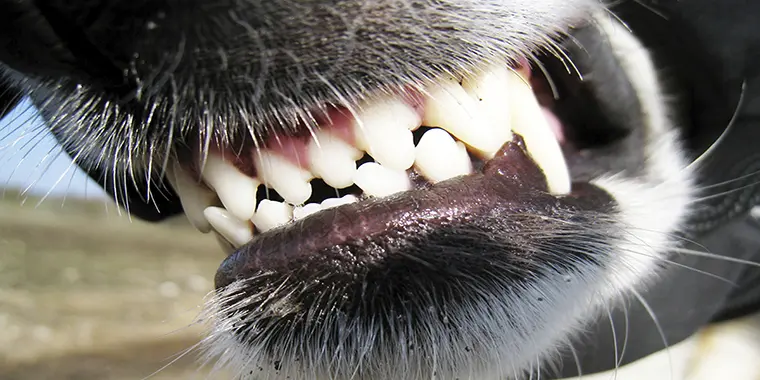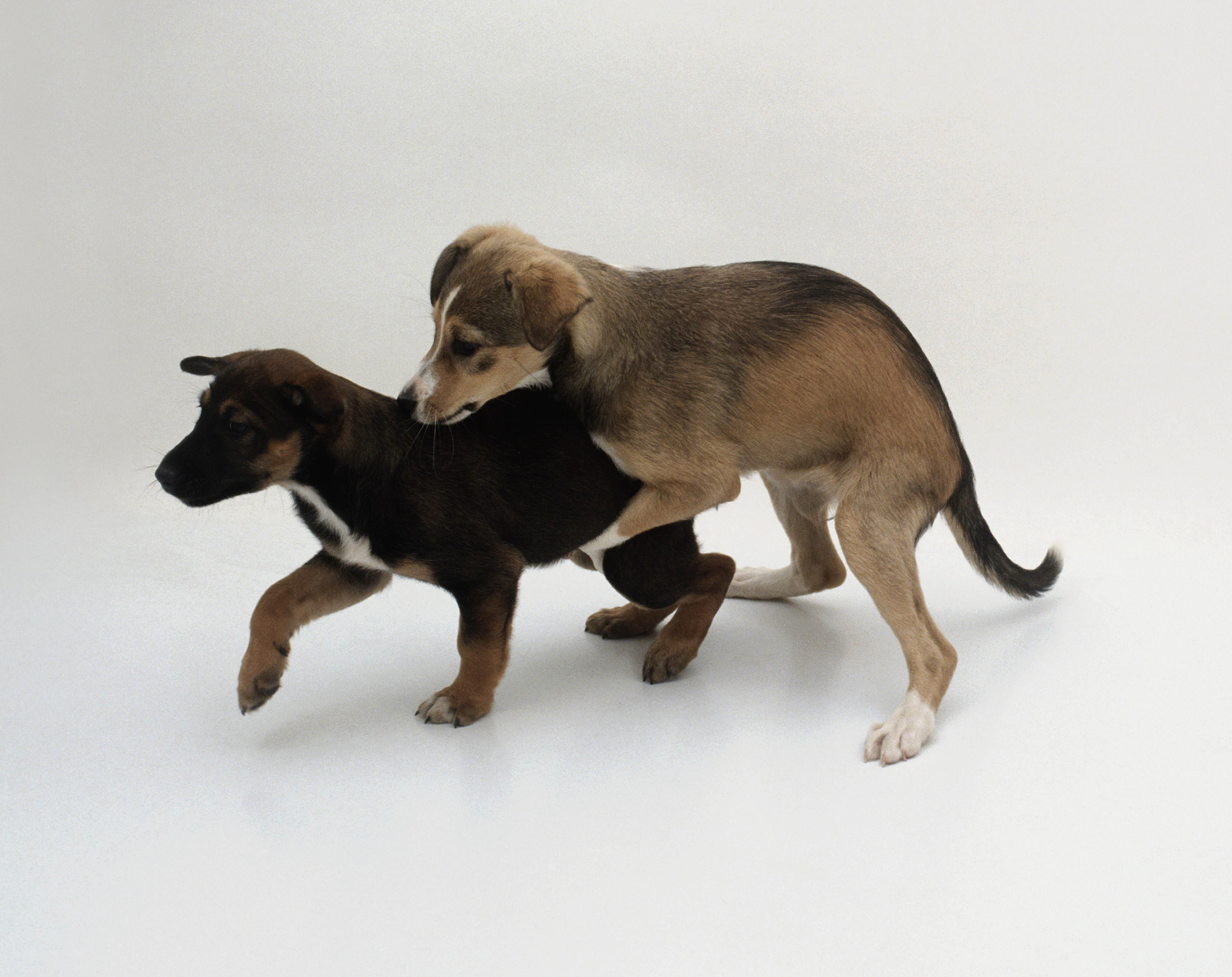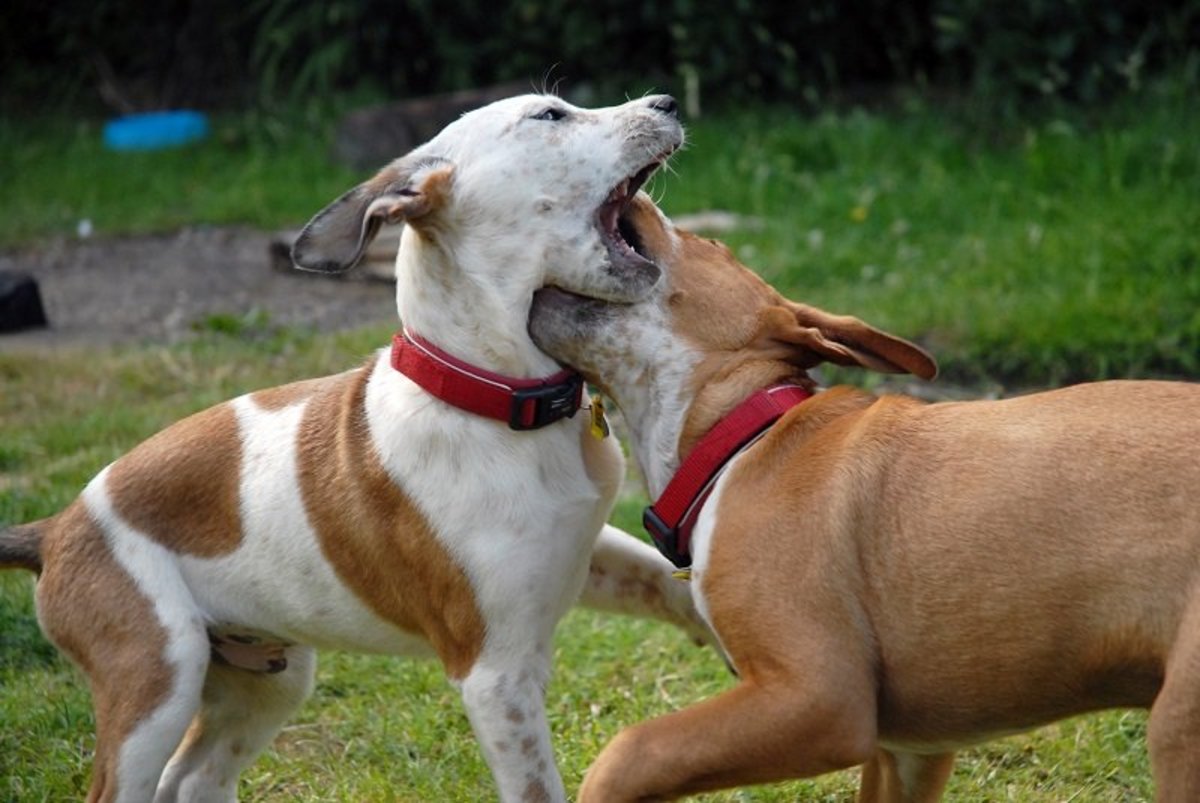Should You Neuter Your Dog? A Comprehensive Guide for Pet Owners
Table of contents
- Should You Neuter Your Dog? A Comprehensive Guide for Pet Owners
- What Is Neutering?
- Why Consider Neutering Your Dog?
- Delving Deeper: The Considerations
- Preventing Accidental Mating
- Reducing Roaming Behaviour
- Decreasing Aggression
- Preventing Certain Health Issues
- Potential Health Complications
- Managing Mounting Behaviour
- Managing Urine Marking Behaviour
- Managing Male-to-Male Competition
- Final Thoughts
Deciding whether to neuter your dog is a significant choice every pet owner faces. It’s deeply personal, with various factors to consider and no one-size-fits-all answer. Our goal here is to provide you with comprehensive information, so you can make an informed decision that aligns with your pet’s best interests.
This article is meant for knowledge sharing and educational purposes only. Please consult your vet and behaviourist before deciding to perform any surgical procedures on your furry companion!
What Is Neutering?
Neutering, or spaying in females, refers to the surgical removal of an animal’s reproductive organs. For male dogs, it’s called castration, and for females, it’s known as ovary and uterus removal. This procedure not only prevents unwanted pregnancies but can also influence behavior and health.

Why Consider Neutering Your Dog?
The reasons for neutering are as varied as the breeds of dogs themselves. Here are a few key points to consider:
- Prevent Accidental Mating: Neutering eliminates the possibility of your dog fathering unwanted puppies, which can contribute to overpopulation and increase the number of dogs in shelters.
- Reduce Roaming Behaviour: Intact dogs often roam in search of mates, which increases their risk of getting lost or injured. Neutering reduces this urge, keeping them safer and closer to home.
- Decreasing Aggression: Hormones can play a significant role in aggressive behaviors. Neutering can reduce aggression towards other dogs, making social interactions safer and more pleasant.
- Preventing Certain Health Issues: Neutering your dog can prevent certain cancers and diseases related to the reproductive system, contributing to a longer, healthier life.
- Managing Mounting Behaviour: This can be a problematic behavior, especially when guests are over. Neutering can decrease or eliminate this often embarrassing behavior.
- Managing Urine Marking Behaviour: Intact dogs are more likely to mark their territory with urine, including inside your home. Neutering reduces this tendency significantly.
- Managing Male-to-Male Competition: Intact males can exhibit aggressive behaviors towards other males, especially in the presence of females in heat. Neutering reduces these conflicts and can make social interactions more harmonious.
Delving Deeper: The Considerations
Before jumping into neutering, it’s crucial to consult with professionals. A vet or an animal behaviourist can help pinpoint whether neutering will address the behaviours or health concerns you’re observing. It’s not a cure-all and might not be effective if the underlying causes of issues aren’t hormonal.
Preventing Accidental Mating
Neutering is highly effective in preventing accidental matings, as it physically removes the ability of a male dog to produce offspring. This straightforward solution helps in controlling the pet population and reduces the number of unwanted puppies.

Advocate
Neutering eliminates the risk of unplanned pregnancies, which can lead to overpopulation and strain on animal shelters. It also prevents the spread of genetic diseases or undesirable traits. If your dog has been identified to have a weakness or genetic condition that should not be passed on through breeding, neutering is a responsible approach to prevent unintentional reproduction and the propagation of those traits.
Opponents
Some argue that responsible pet ownership, including supervision and proper fencing, can prevent accidental mating without the need for surgery. Additionally, some owners may desire to breed their dog responsibly for various reasons such as preserving a specific breed or lineage.
Reducing Roaming Behaviour
Roaming behaviour in dogs, particularly in males, is often driven by the instinct to find a mate. Neutering can significantly reduce this drive, making a neutered dog less likely to roam and thereby lowering the risks associated with it, such as accidents or fights with other animals. Here are some potential root cause for my dogs exhibit roaming behaviour:

Seeking Mates
Neutering is highly effective in addressing roaming caused by the desire to find a mate. By removing the primary hormonal drive, neutering significantly curtails this behavior. In male dogs, the urge to roam in search of a female in heat is directly linked to testosterone. Once neutered, the reduction in testosterone levels typically leads to a decrease in such roaming tendencies.
Seeking Stimulation
For dogs roaming out of a need for stimulation or social interaction, neutering is not a direct solution. These dogs require mental and physical engagement. Providing a variety of toys, regular exercise, and opportunities for socialization with other dogs can meet this need effectively. Owners should focus on enriching their dog’s environment and routine to curb roaming for stimulation.
Anxiety-Driven Roaming
In cases where roaming is a symptom of anxiety or fear, neutering does not address the root cause. Anxiety-driven behaviors require a tailored approach that may include behavior modification training, desensitization exercises, and possibly medical intervention. Professional guidance from a veterinarian or a certified animal behaviourist can be crucial in developing a comprehensive plan to manage anxiety in dogs.
Decreasing Aggression
To evaluate whether neutering can effectively reduce aggression in a dog, it’s important to understand the root cause of the aggression. Aggression in dogs can stem from various factors, and neutering may only be effective in addressing certain types of aggression related to hormonal influences. Here are some potential root causes of aggression and how neutering may or may not affect them:

Hormonal aggression:
Aggression influenced by sex hormones, such as testosterone in intact male dogs, may be responsive to neutering. Testosterone can contribute to dominance-related aggression, territorial aggression, and aggression towards other dogs or animals. Neutering reduces the production of testosterone, which can decrease the intensity of these behaviours in some cases.
Fear-based aggression:
Fear-based aggression occurs when a dog feels threatened and responds with aggression to protect itself. This type of aggression can be directed towards other male dogs, especially in unfamiliar or stressful situations. Neutering is unlikely to resolve fear-based aggression, as this behaviour is more related to the dog’s past experiences, training, and socialisation rather than hormonal influences.
In the context of fear-based aggression, it’s crucial to recognize that neutering might not only fail to mitigate the issue but could, in some cases, exacerbate it. There are reports of dogs that began biting or displaying more pronounced aggressive behaviors after being neutered.
For dogs with fear-based aggression, a comprehensive approach that includes behavioural training, socialisation, and possibly professional help from a veterinarian or certified dog trainer may be necessary to address the underlying issues and modify the dog’s behaviour in a positive way.
Resource guarding:
Aggression over food, toys, or territory may not be directly influenced by neutering. Resource guarding behaviors are typically motivated by the perceived threat of losing valuable resources and are often addressed through behavior modification techniques and training.
Redirected aggression:
Neutering is unlikely to prevent or resolve redirected aggression, which occurs when a dog redirects its aggression towards an inappropriate target, such as a person or another animal, due to frustration or arousal from a separate stimulus.
Pain-induced aggression:
Aggression resulting from pain or discomfort, such as injury or underlying medical conditions, requires addressing the underlying physical issues. Neutering may not directly impact pain-induced aggression unless the pain is related to reproductive organs or hormonal imbalances.
Preventing Certain Health Issues
Neutering helps in preventing certain health issues, such as testicular cancer and some prostate problems, by removing the testes. However, it’s important to note that neutering does not prevent all health issues. Diseases not related to the reproductive tract won’t be affected by neutering. Here are some health issues that would be resolved by neutering:
Testicular cancer:
Neutering removes the testicles, eliminating the risk of testicular cancer in male dogs.
Prostate problems:
Neutering reduces the risk of benign prostatic hyperplasia (enlargement of the prostate) and prostatitis (inflammation of the prostate) in male dogs.
Uterine infections:
Neutering prevents pyometra, a life-threatening infection of the uterus, in female dogs.
Mammary tumors:
Neutering before the first heat cycle significantly reduces the risk of mammary tumors in female dogs.
Potential Health Complications
While neutering does mitigate the risk of some diseases, it’s important to be aware that it can lead to other health issues that require active management. Owners should also be vigilant about their dog’s mental health, as neutering can sometimes lead to changes in mood and energy levels. Keeping an open line of communication with your veterinarian and committing to regular health screenings are key strategies to ensure that any post-neutering health conditions are identified and managed effectively.

Weight management:
Neutering can lead to changes in metabolism and appetite, increasing the risk of obesity. Owners should monitor their dog’s weight and adjust diet and exercise accordingly to prevent obesity.
Orthopedic issues:
Neutering has been associated with an increased risk of certain orthopedic problems, such as hip dysplasia and cranial cruciate ligament tears. Proper nutrition, weight management, and exercise can help mitigate these risks.
Behavioural changes:
Neutering may alter behaviour in some dogs, including changes in aggression, fearfulness, or anxiety. Behavior modification techniques and training may be necessary to address any behavioral issues that arise.
Potential long-term health effects:
Some studies suggest that neutering may impact the development of certain organs and increase the risk of other health problems, although more research is needed to fully understand these effects. Regular veterinary check-ups and preventive care can help monitor and manage any potential long-term health consequences.
Managing Mounting Behaviour
Mounting behavior in dogs can have various motivations, including reproductive instincts, social dominance, playfulness, or even stress relief. While neutering can reduce mounting behavior driven by reproductive instincts, it may not eliminate mounting entirely if it’s motivated by other factors such as dominance or stress. Here are some potential root causes for mounting behaviour:

Reproductive Instincts
Mounting behavior driven by reproductive instincts is quite common in dogs. This primal urge is a direct result of hormonal drives, especially in males, aimed at reproduction. Neutering can significantly reduce, if not completely eliminate, mounting behaviors arising from these reproductive instincts, as it directly addresses the hormonal root of the behavior.
Social Dominance
Another cause of mounting is social dominance. Dogs often use mounting as a way to assert dominance over other dogs or animals. This behavior is not directly linked to the reproductive instincts and hence, neutering might not have a significant impact on reducing mounting behaviors motivated by social dominance.
Playfulness
Mounting can also be a form of play among dogs. This behavior might be observed in dogs engaging with their peers, toys, or even humans. Since this action is more about social interaction and less about dominance or reproduction, neutering is unlikely to affect playful mounting.
Stress or Anxiety Relief
Some dogs might resort to mounting as a coping mechanism for stress or anxiety. This behavior serves as a self-soothing action that helps the dog deal with uncomfortable situations or emotions. Neutering does not directly address the psychological aspects that lead to mounting for stress or anxiety relief, and thus, might not effectively reduce this behaviour in all cases.
Managing Urine Marking Behaviour
Urine marking is a form of scent communication used by dogs to mark territory, establish social hierarchy, or communicate with other animals. While intact male dogs are more likely to urine mark due to hormonal influences, neutering may not completely eliminate this behavior, as other factors such as territoriality, anxiety, or stress can also contribute to urine marking. Here are potential root cause that can lead to urine marking:

Hormonal Influences
Hormones play a significant role in urine marking, especially in intact male dogs. The presence of testosterone tends to increase the likelihood of this behaviour as a means of marking territory and asserting dominance. In this case, neutering can largely resolve urine marking since it significantly reduces the levels of testosterone in the dog’s body, thereby diminishing the hormonal drive to mark.
Territoriality
Dogs often urine mark to establish territory or signal their presence to other dogs. This behavior is not solely driven by hormones and can occur in both neutered and intact dogs. While neutering might not directly resolve territorial urine marking, behaviour modification techniques can be effective in managing this issue.
Anxiety or Stress
Urine marking can also be a response to anxiety or stress, serving as a coping mechanism for the dog. Factors causing stress or anxiety in dogs can be varied, including changes in their environment, lack of routine, or feeling threatened. Since this behaviour is rooted in emotional distress, neutering is unlikely to resolve urine marking caused by anxiety or stress. Supportive measures, including environmental enrichment and possibly consulting with a veterinary behaviorist, are recommended.
Social Hierarchy
In multi-dog households or environments where multiple dogs interact, urine marking can be used as a form of communication to establish a social hierarchy. This type of urine marking is driven by the dog’s instinct to assert dominance or submission within a group. Neutering may indirectly reduce this type of urine marking by lowering aggression and competitiveness, but it might not eliminate it entirely if the behaviour is well-established.
Managing Male-to-Male Competition
Male-to-male competition, often manifesting as aggression, can be influenced by various factors such as social hierarchy, resource competition, territoriality, and fear. Neutering may reduce aggression driven by hormonal influences, but it may not address aggression stemming from fear or other behavioral issues. If the competition is driven by fear, neutering may not improve the situation and could potentially exacerbate it. Here are some root cause resulting in male-to-male competition:

Resource Competition
Resource competition among male dogs can lead to aggressive competition as they vie for food, toys, or attention from owners. In such cases, neutering might have a minimal effect on reducing aggression because the behavior is not primarily driven by hormones but by the desire to secure scarce resources.
Territoriality
Territorial aggression is common in male dogs, manifesting as aggressive behavior when they perceive a threat to their space or property. Neutering can reduce the intensity of territorial behavior in some cases because lower testosterone levels can make dogs less inclined to assert dominance over territory. However, neutering alone may not fully address territorial aggression if it’s deeply ingrained or if the dog has learned to behave aggressively.
Fear-Based Aggression
The aggression could be fear-based. If the aggression is fear-based, please refer to the following section for more details!
Final Thoughts
Deciding to neuter your dog requires careful thought, professional consultation, and a deep understanding of its potential impact on your pet’s health and behaviour. This procedure goes beyond preventing unwanted litters; it involves evaluating how it might affect your dog’s overall well-being. To navigate this decision, it’s essential to engage with both a veterinarian and a behaviorist. They can help pinpoint the specific behaviours you aim to address and determine whether neutering will effectively resolve them, as not all issues are mitigated by this procedure.
Understanding that each dog is an individual with unique needs is crucial. Collaborating with your vet and behaviourist allows you to explore the root causes of your dog’s behaviour and assess the best course of action tailored to their specific requirements. This collaborative, informed approach ensures that you make a decision that enhances the quality of life for your beloved pet.
For those contemplating this decision or who have already taken this step, sharing your journey can be incredibly beneficial. Your insights and experiences could provide valuable guidance to others in a similar situation, helping them make a well-informed decision for their furry companions. Let’s foster a community of knowledge and support, ensuring the best outcome for our pets’ health and happiness.
Thanks, Peace and Love!
Shafik Walakaka